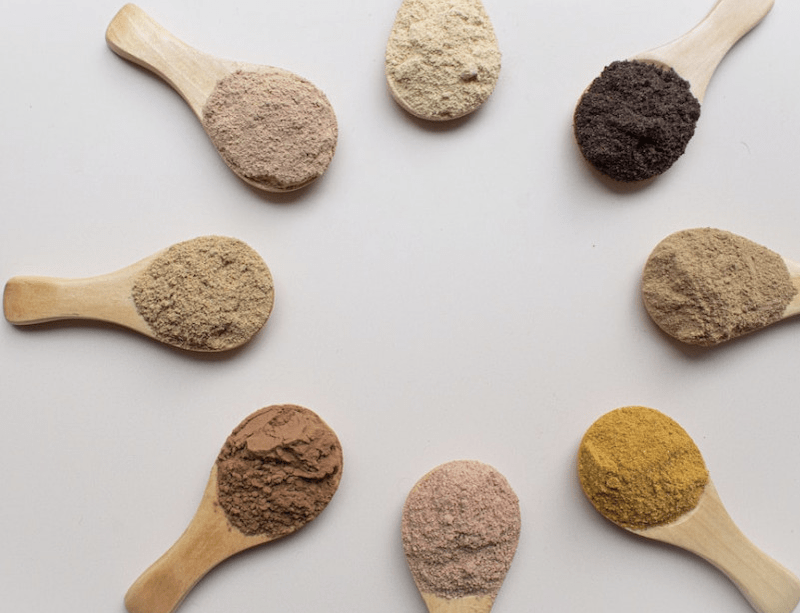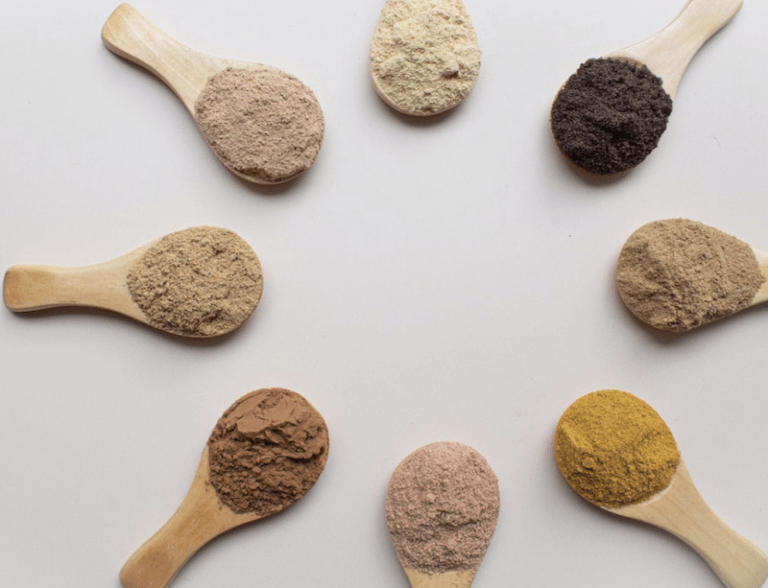
“Should I take this supplement?”, “Should I do this workout?”, “Should I take this?” and many more “should I-?” questions are likely to arise from you when encountering the wild fitness industry. Many people become overwhelmed and may then buy into the most “optimal” trend, especially with protein powders. The question of “should I take protein powder?” is not as difficult to answer as many people may think, so let’s dive into it now and help you to solve this.
What ACTUALLY is Protein Powder?
To get straight to the point, protein powders are powdered forms of protein… But what is protein then?
Protein is an essential macronutrient that is vital for the overall growth of your body. It’s made of many amino acids within the body. It is necessary for the growth and repairment of new cells within the body. This nutrient can be found in poultry, meat, fish, eggs, dairy, eggs, fruits, vegetables, grain, nuts and seeds. Without it, you will struggle to maintain (and grow!) muscle, you will lose strength, fatigue will occur and many other negative side effects will soon be experienced.
So imagine taking this macronutrient, and creating a powdered version of it so it is easily consumable… yep, that’s what protein powder is. Like a top-up of protein.
So whether you are in the gym, reading a nutrient label or in food class, now you have a good grasp of what protein is!
Immense versitality?!
Here’s the thing with protein powder though; it’s incredibly versatile. There are many forms of it such as:
- Whey Protein-
So whey is a component of dairy milk and makes up 20% of the product. This is arguably the most popular form of protein powder and it’s for good reason; it’s generally considered the most complete and highest-quality protein source. It contains all nine amino acids and is easily absorbed by the body. Furthermore, there 3 different subtypes of Whey Protein (all of them being processed differently), these being
1. Whey Isolate: This is the form that has been filtered through a process to aid in the reduction of lactose, and carbohydrates to ultimately maximise protein. It has the highest concentration of protein out of all the whey forms (however it has fewer macro and micro-nutrients due to the filtering process)
2. Whey concentrate: This is the form that goes through less processing and filtering. It is considered the healthiest out of the three as it contains many of the macro and micro-nutrients that are lost in its other two counterparts. Whilst it does have less protein, this downside is quickly made up through the presence of the other nutrients found, as the benefits go beyond simply muscle recovery.
3. Whey Hydrolysate:This is the form that can be either an isolate or a concentrate. With this form, some of the amino acids have been broken down as a result of exposure of the proteins to enzymes, acids or heat. This is the most easily absorbed protein powder out of all three of the whey variations, however, like the isolate, it has fewer macro and micro-nutrients compared to the concentrate.
- Plant-based
As the name suggests, it is a form of protein powder that is derived from different types of plants such as peas, brown rice, soy and hemp. It can be a combination of those described, or simply on their own (such as brown rice protein powder for example). The digestion time on these powders tends to be slower as a result of their high-fibre content
- Egg protein
This is a protein powder made out of the whites of eggs. It contains a significant amount of vitamins and minerals.
- Casein Protein
This is a protein powder made from milk, like whey. However, it digests slowly in comparison to whey, making it a good choice for a pre-bedtime supplement. This too provides all the essential amino acids that your body requires.
As we can see from the list, protein powder is not restricted to one type, many different options are likely to satisfy your circumstances.
Vegan? Plant-based protein is your choice.
Want high protein? Whey-isolate is the whey (I saw the opportunity and I took it!)
On top of all this, protein powder can be used in various recipes, such as protein shakes, milkshakes, coffee, cakes, pancakes, waffles, and cereal, the list truly never ends!
The versatility of this supplement is immense.
It’s NOT magic
However, it must be made clear that protein powder is not some magic powder that will shred your fat off your body, replace pure food or build muscle faster than Ronnie Coleman.
It is only magic if you make it by magic. Protein powder is a bonus to your diet. It is a necessity that you are already consuming protein outside of protein powder, such as eggs, milk, chicken, beef, peas and other options. Protein powder can never truly replace these foods.
BUT, if you find yourself struggling to eat enough of these foods during the day, due to personal reasons, then a quick protein shake (for example) or addition of protein powder to a meal is a quick, magical way of adding protein to your diet.
You must aim to consume sufficient carbohydrates, fats and other sources of protein to work towards your goals, but protein powder can make it much easier if you use it effectively!
Is it WORTH it?
The prices of protein powder can vary. Depending on the manufacturers, types of protein, sizes and current market conditions, prices can range significantly.
For some websites, 1kg worth of whey isolate can cost up to $45. In another store, 2.5kg of vegan protein powder can cost up to $199.0. Furthermore, in another store, standard whey of 4.5kg can cost up to $229. Additionally, sales often occur so the prices can fluctuate.
As you can see, the prices vary and the quality can be related to the price. Whether it is worth it or not depends on your financial circumstances, how well you can put it to use, how much your goals mean to you and if there are other protein powder options.
So what does it mean for YOU
So, back to our primary question; “Should I take protein powder?”.
Well, consider if you are any of these:
- I am a person just beginning to train.
- I struggle to fit all of my protein intakes in a day through other food options or for other reasons.
- I am in a decent financial position and train.
- I am vegan and train.
- I am lactose intolerant, but train
- I do not work out, but want to increase my protein intake.
- I want to build muscle
- I want to lose fat
- I want to maintain muscle
If you answered yes to any of these factors, then a protein powder of some kind is most likely a good option. Of course, there are other reasons not described that may validate the use of protein powder as well.
Additionally, even if you said no, but still want to take it, that is absolutely fine as well! Just ensure that you already have a healthy diet, as protein powder cannot fix a poor one and is certainly possible to build your dream body without it. In fact, if you already have a healthy diet and consume a sufficient amount of protein already, I would actually recommend for you to not purchase it! It is also good to look at reviews and the nutritional label, to determine the quality and if it suits your needs
I hope this was useful and you learnt something new about this wonderful product. I told you the question wouldn’t be that difficult to answer, and hopefully, you found your answer. Whether it is yes or no, I hope your time was well spent.
If you have any questions about protein powder, thoughts or anything else, feel free to leave them in the comments. I would love to hear from, learn and assist you!

